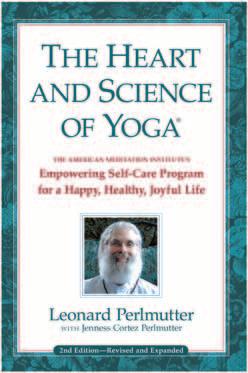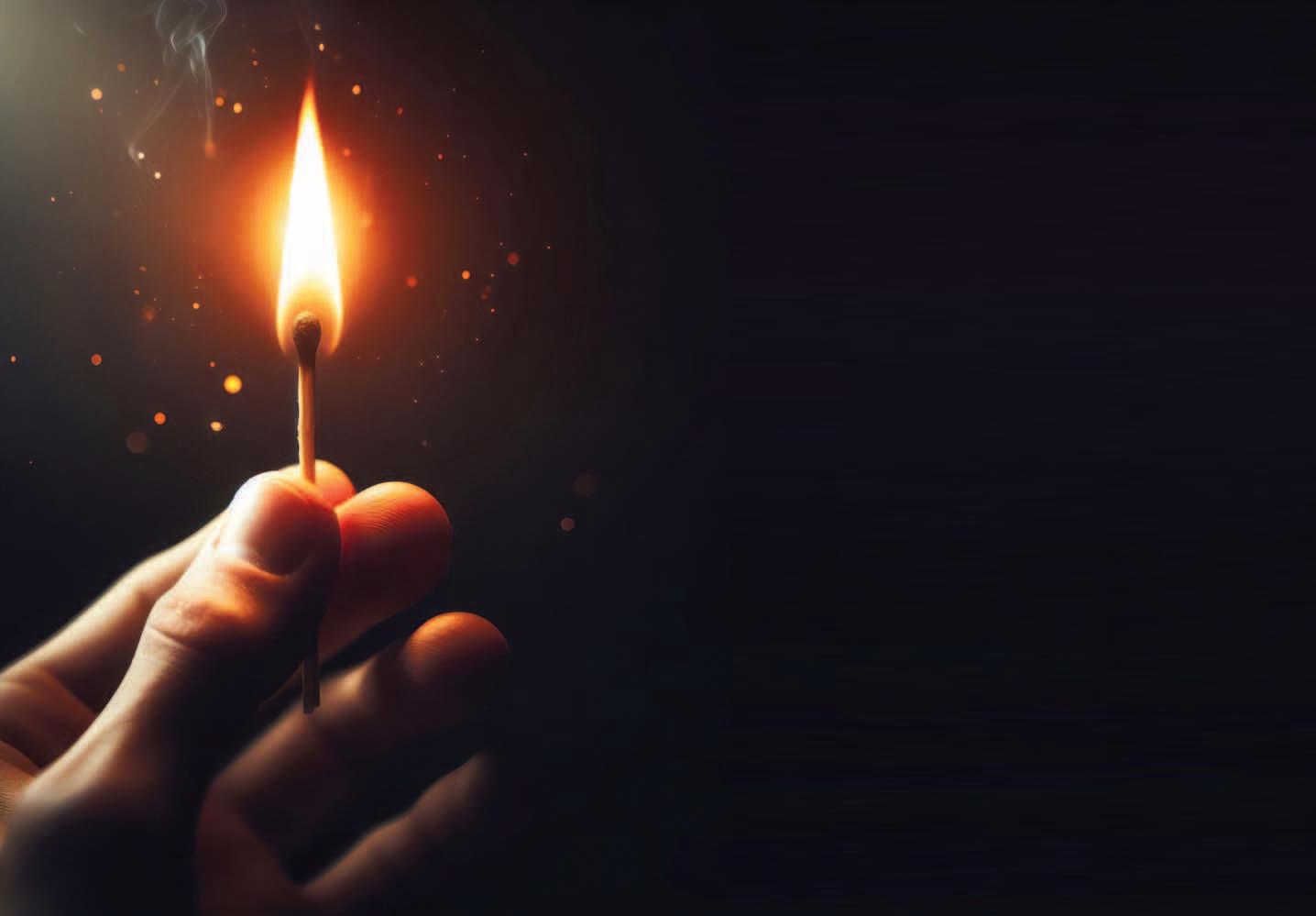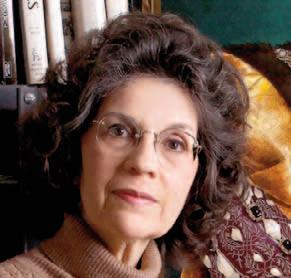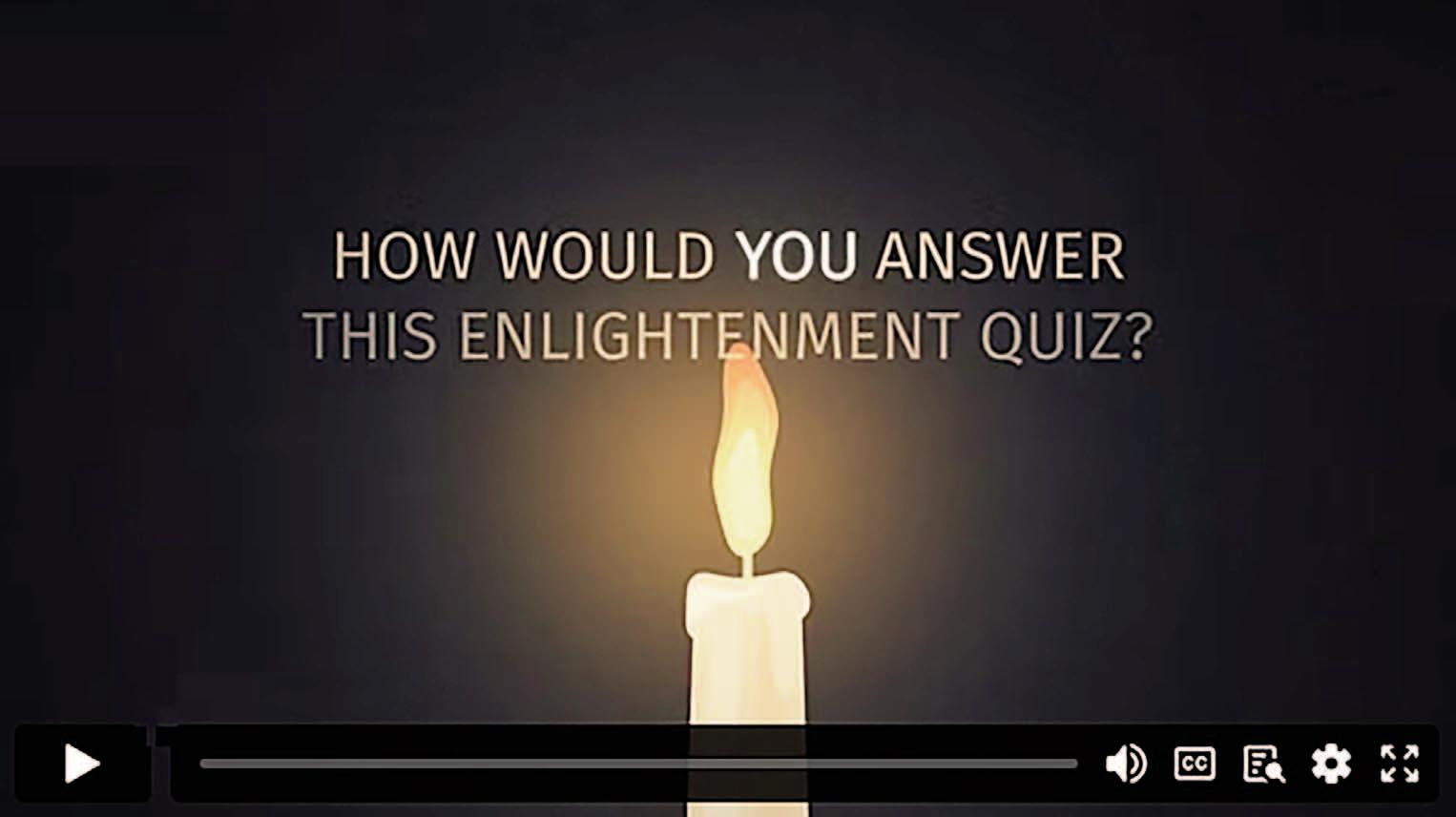










This theater lobby photograph depicts Joan Crawford and Walter Huston as they starred in the 1932 motion picture adaptation of W. Somerset Maugham’s short story, Rain.












This theater lobby photograph depicts Joan Crawford and Walter Huston as they starred in the 1932 motion picture adaptation of W. Somerset Maugham’s short story, Rain.
By Eknath Easwaran
I want to tell you a story to illustrate how even good work undertaken with arrogance or lack of compassion can bring about more harm. The story is Rain, one of the great short stories of the twentieth century, written by W. Somerset Maugham. Although it is about individuals, you can read between the lines to apply it even to corporate benevolence and foreign aid. It was originally published in a collection Maugham entitled The Trembling of a Leaf which he used as a play on the words of 19th century French literary critic Charles Augustin Sainte-Beuve: “There is only the trembling of a leaf between happiness and despair.”
The background of Rain makes an interesting story in itself. It seems that in December, 1916 shortly before the story was first published Somerset Maugham sailed on a Sydney-bound steamer called Sonoma. Scholars playing detective recently managed to find the passenger list of that voyage and were rewarded to discover not only the names of Mr. Maugham and his secretary, but also of one “Miss Thompson.” Maugham hadn’t even bothered to change her name. Encouraged, they tracked down everyone they could find who had sailed on the Sonoma in 1916, and asked them what this Miss Thompson looked like. “Coarsely 2
pretty,” the survivors recalled. “Flashy. A little plump. Full of animal vitality.”
Many of the young men on board naturally began following Miss Thompson around, just as in Maugham's story. Her luggage included a phonograph which she played in her cabin throughout the night, while these men sat talking and singing and drinking with her. Maugham’s cabin was two doors away, and he became quite interested in this scene. As he says, everybody was “copy” to him; everyone was a potential story. Just as a mystic can see deep into the positive side of human nature, Maugham saw deep into the negative side, and he could be ruthless in describing it too.
The “Reverend Davidson” (Maugham did change his name), was on the ship as well. He was a medical missionary, and Maugham describes him in his journal: “A tall thin man . . . He had hollow cheeks and high cheek bones, his fine, large, dark eyes were deep in their sockets, he had full sensual lips, a cadaverous air and a look of suppressed fire.” His wife, Maugham records, was from New England, which I suppose implies that she was inclined to judge people’s failings without remembering the compassionate theory of the three yogic gunas (Tamas–lethargy, Rajas–restless activity, Sattva–equanimity).
Maugham noted with relish that she loved to decry in detail the depraved marriage customs of the local natives. We can imagine her opinion of Miss Thompson.
Davidson was genuinely concerned, if not about Miss Thompson herself, at least about her moral situation. I remember Walter Huston in the movie role, pacing up and down and cracking his knuckles, terribly upset because this woman was leading so many young men astray. But instead of compassion, his attitude was one of condemnation. “If the tree is rotten,” he exclaims, “it shall be cut down and fed into the flames.” Motives like these are not in harmony with ahimsa (non-injury, non-harming); therefore, the Bhagavad Gita would say, they cannot escape bringing harm to everybody involved.
As Maugham's story picks up, the steamer is delayed at Pago-Pago for a fortnight because of quarantine. Sadie
Thompson has a field day. There is uproarious merrymaking in her room day and night, which does not endear her to her missionary friends. Davidson does some sleuthing and learns that she is originally from San Francisco and has escaped a raid on the redlight district in Honolulu; now she is on her way to Sydney in search of a job as a barmaid. Clearly she could use a fresh start. But Davidson is not interested in finding some way to help her; he is only trying to have his way. He goes to the authorities and asks them to deport her.
What happens afterwards to the real Miss Thompson I do not know. But in Maugham’s story Davidson goes on like this, using any self-righteous means he can think of to plunge her into an even lower opinion of herself than she already has. For a long time he is not particularly successful. But he is determined to “save her soul,” to bring her around to his own view of her, and slowly he breaks her down. She begins to see herself as a fallen woman and learns to feel ashamed. He finds out that she is fleeing a three-year jail sentence in San Francisco, and he threatens her continually; he is determined to get her to go back and pay for her sins. Finally she becomes cringing and dependent. The phonograph is silenced. She begins dressing plainly, stops wearing makeup and perfume, lets Davidson read the Bible to her, and confides in him at length about her past sins. She believes she has met a man unlike the rest: someone of real moral stature, who is not after her physical attractions but is truly concerned for her soul.
To accomplish this “miracle,” however, Davidson is obliged to spend a good deal of time with her talking to her, listening to her, reading to her, reasoning with her. And as she responds to him, though he does not realize it, he begins to respond to her too. The wheel of karma has begun to roll. He has had no sympathy or understanding for this woman or for the men so driven by compulsive desire; these are not emotions that he recognizes. But Sadie Thompson was “coarsely pretty.” She and Davidson spend long hours talking to each other, often well into the night, and slowly she begins to come
up in his dreams. What he has been judging in others is happening to him, and not because of Sadie: the same habits (samskaras) he condemns so vehemently in others are acting now in his own consciousness.
Finally comes a long, long spell of continuous, monotonous monsoon rains. Davidson is already obsessed with Sadie, though he cannot allow himself to realize it, and the ceaseless drill of the rain begins to pound in his head, his heart, his veins. On the night before she is to sail back to San Francisco, unable to control his pent-up desires, he enters her room and does not leave until two in the morning.
At daybreak the rain has ceased, and Davidson is not to be found. Eventually his body is discovered washed up on the beach. He has committed suicide; the fierce engrained habit of judgment has turned on him. Sadie is her defiant self again, dressed and made up as before, and her phonograph is going full blast. “You men!” she says derisively to the doctor who represents Maugham. “You're all the same, all of you!”
There is a ray of sunshine around this story. Maugham was in Hollywood soon after it was written, and late one night another writer called John Colton came to his hotel room and said, “I can't sleep. Do you have anything good to read?” Maugham said, “I have the proofs of a short story I've written. You may read those if you like.” Colton might have wanted some more sensational Hollywood stuff, but he had to get to sleep somehow. Maugham’s story kept him up all night, and the next morning he went back and said, “I’ve got to make a play out of this!” That is how Rain came to be presented on Broadway in 1922. It sold out for some eighteen months, and every actress around wanted to play the part of Sadie. It shows that people’s hearts are still with the underdog, which is a very appealing facet of human nature.
You can see, reading between the lines, that Davidson’s faith (shraddha) applies to a much wider picture than the relationship between a repressed missionary and a lady “full of animal vitality.” Any attempt to help another person, community or nation that is tainted by disdain, condescension, judgment or a “holier than thou” attitude is considered to be an ego or sense gratification (preya), and is, therefore not to be served in thought, word or deed. When “help” is defined by conformance to our own ideas of what is “right” or, worse, by our own self-interest the results are poisoned.
By contrast, for the way of love, we have only to remember the example the Reverend Davidson professed to follow. Jesus was at supper in a Pharisee’s house when, a woman (Mary Magdalene according to tradition), “whose sins were many,” stole in behind him and knelt for a long while weeping at his feet. A great Indian poet gives her thoughts in beautiful words: “You who walked on water, rescue me also from the ocean of my tears.” Everyone at the table is shocked that Jesus should allow such behavior from such a woman. But Jesus explains simply, “She loves much because so much has been forgiven.” And to Mary he repeats, “Your sins are forgiven. Go in peace.”
Ralph Waldo Emerson, a 19th century American transcendental poet, pointed out that the ancestor of every negative action, every negative decision, begins with a negative thought. But we do not have to be afraid of negative, unskillful thoughts if we do not welcome them. They may be in the air, or knocking at the door, but if we don’t embrace them, ask them in, and make them our own, they will have no power over us.

This Eknath Easwaran essay is reprinted from “The Bhagavad Gita for Daily Living,” Volume 3: To Love Is to Know Me. All rights are reserved by the Blue Mountain Center of Meditation, ©1984.


By Leonard Perlmutter (Ram Lev)
Human birth is not an accidental phenomenon. Each of us has been born to accomplish a goal. That goal is to expand our spiritual awareness sufficiently to recognize and become one with the Supreme Reality, and to serve Its eternal wisdom as a loving instrument in every relationship. We are asked to compassionately witness, but remain unaffected by the highs and lows of our personality’s old attachments to likes and dislikes, victories and defeats, praise and blame.
Not everything in life happens exactly the way we wanted or planned, but the very thoughts of disappointment and frustration that arise can bring us two invaluable virtues: patience and determination. If these two powers are faithfully nurtured and cultivated, they can expand our spiritual awareness and lead us to the attainment of our true goal of human life.
In fact, every human being is born with all the means and resources necessary to attain the goal. And each spiritual aspirant can learn how to use their resources skillfully and efficiently. On everyone’s journey to Self-realization, the power of thought is the
practical tool by which one can distinguish what ought to be done from what ought not to be done. Through the moment-by-moment power of thought, one increasingly comes to know the nature of the Supreme, the purpose of life, and the ever-present means to achieve it. As seekers of Truth earnestly contemplate who they are, from where they have come, what selfless service is being asked of them, and ultimately, where they will go when the body is no more, it is the reliable power of thought that expands their spiritual awareness––until all the mysteries of life are resolved.
The stream of life may change its course, it’s nature may shift from one state to another, it may become manifest or unmanifest, but it never stops. It keeps flowing until it merges and becomes one with the ocean of pure, Supreme Consciousness.
Traveling in the eternal stream of life, a human being has already gone through innumerable life states. The stream of life is filled with experiences of, and reactions to, one’s countless births and deaths.
The only way to become free from that
cycle is to begin examining life from a higher perspective. For that spiritual work, we must humbly employ the gifts of discrimination, will power, and Divine inspiration––which can expand the limited perspectives of the Ego, Senses and Unconscious functions of the mind.
To go beyond the cycle of birth and death, birth and death, one must acknowledge the transitory nature of the sense objects of the world, and contemplate the limited satisfaction derived from them. No doubt, sense objects can be a source of joy for human beings, but most of that joy exists only in the seeking of these objects, and not in the attainment of them. Once the human desire for them has been fulfilled, the Ego, Senses and Unconscious portions of the mind soon become bored, dissatisfied and begin a new search for other objects.
Knowledge about worldly objects and
the tendencies of the senses and mind can help spiritual seekers to expand their perception. As a result, a feeling of equanimity and freedom arises in the heart. The knowledge born of such experiences then inspires spiritual seekers to change the course of their lives, and they begin exploring the real possibility of experiencing lasting peace and happiness––in this lifetime.
Throughout this ongoing process, priorities and lifestyle choices undergo many changes. In response to the growing power of our discriminative decision-making, our spiritual desires begin to consume all lesser desires, and loosen the mind’s attachments to old thoughts, speech, and actions. And it is through this expanding mental purification and heightened spiritual awareness, that the earnest aspirant receives enlightenment, by Divine Grace.






January 2025 will mark the 6th Annual observance of National Conscience Month. Throughout the month Americans from all walks of life will be imagining new ways to celebrate the benefits of experimenting with their Conscience to guide their thoughts, words and deeds.
Here’s a special opportunity for high school seniors across the nation! You’re now invited to participate in a unique and creative way by writing a short essay about using your Conscience instead of old habits. Think of a real situation in your life or create an imaginary scenario in which you allowed (or chose not to allow) your Conscience to guide your thoughts, words and actions. What were the results? What were the benefits? Did you experience any unexpected consequences? What did you learn from your experiment?
One talented student will receive a $2,795. scholarship,* awarded for an original essay of 1,000 words or less. *$2,000 scholarship for Higher Education, and $795 scholarship for the AMI Meditation Foundation Course
Submission Instructions: No membership or purchase of any kind is required to take part in the National Conscience Month Essay Contest. Essay submissions should be sent by email to ami@americanmeditation.org. Submissions should be sent as a PDF attachment. Submissions must be received no later than Monday, February 3, 2025. The contest winner will be notified by email. Submissions may be featured by the American Meditation Institute either online or in print in connection with National Conscience Month programming and promotions, and the right to reproduce submissions is reserved by AMI. For complete information visit: ConscienceMonth.org E-mail essays to: ami@americanmeditation.org Essays must include: your name, address, phone number and high school name.
Leonard Perlmutter (Ram Lev)
A Living Link in the World’s Oldest Health & Wisdom Spiritual Tradition

Developed by Leonard Perlmutter (Ram Lev), and derived from his award-winning books
The Heart and Science of Yoga and YOUR CONSCIENCE ®
Yoga Science & Philosophy–WEEK 1
Learn to expand your creative consciousness
How to use the mind for the best choices
Understanding pain as an agent for healing
Increasing energy, will power & creativity
Antidotes for worry, stress and depression
AMI Meditation®–W EEK 2
Systematic procedure for AMI Meditation®
Diminishing distractions with your Mantra
Learning the one-minute meditation
Building focus and fearlessness
Breathing Techniques–WEEK 3
Breath as Medicine
How breathing irregularities foster dis-ease
Three-part diaphragmatic breath



Yoga Psychology & Ayurveda–WEEK 4
Coordinate the Four Functions of the Mind to access the power and Inner Wisdom of Your Conscience
Use the power of NOW to build and heal relationships
Ayurvedic Medicine & Nutrition for your health
Easy-Gentle Yoga Exercises–WEEK 5
Yoga stretches to detox the lymph system and benefit your muscles, nerves, joints, glands & internal organs
Physiological benefits of yoga postures
Mind / Body Self-Care Plan–WEEK 6
The healing power of prayer
The practical benefits of contemplation
Creating a therapeutic self-care plan for yourself
Learning to budget your time
Integrating spirituality into daily life
Endorsed by Dean Ornish MD, Bernie Siegel MD, Larry Dossey MD

Leonard (Ram Lev) is an American spiritual teacher, a direct disciple of medical pioneer Swami Rama of the Himalayas, and a living link to the world’s oldest health and wisdom spiritual tradition. A noted educator, philosopher and Yoga Scientist, Leonard is the founder of the American Meditation Institute, developer of the AMI Foundation Course curriculum, and originator of National Conscience Month. He is the author of the awardwinning books, The Heart and Science of Yoga® and YOUR CONSCIENCE, and the Mind/Body/Spirit Journal, Transformation. A rare and gifted teacher, Leonard’s writings and classes are enlivened by his inspiring enthusiasm, vast experience, wisdom, humor and a clear, practical teaching style. Leonard has presented courses at the M.D. Anderson Cancer Center, numerous medical colleges, Kaiser Permanente, the Commonwealth Club of California, the U. S. Military Academy at West Point and The New York Times Yoga Forum with Dean Ornish MD.





You are invited to join Jenness Perlmutter & Leonard (Ram Lev)
FREE: Every Sunday 9:30 -11:00am ET GUIDED MEDITATION & SATSANG
AmericanMeditation.org/sunday
LIVE on ZOOM and at the AMI Home Center
2024
SEP 5 & 12: YOGA SCIENCE LAB see p.12
Thurs. Night, 6:30 - 8:30 PM ET (2 wks) Live on Zoom
SEP 9 - OCT 14: GITA/ YOGA PSYCHOLOGY (6 wks) see p.12
Mon. Nights, 6:30-8:30 PM ET Live on Zoom & AMI Home Center
SEP 15 - OCT 20: AMI FOUNDATION COURSE (6 wks) see p. 9-10
Sun. Nights, 6:30 -8:30 PM ET Live on Zoom & AMI Home Center
OCT 21 - NOV 25: GITA/ YOGA PSYCHOLOGY (6 wks) see p.12
Mon. Nights, 6:30-8:30 PM ET Live on Zoom & AMI Home Center
NOV 3 - DEC 8: AMI FOUNDATION COURSE (6 wks) see p. 9-10
Sun. Nights, 6:30 -8:30 PM ET Live on Zoom & AMI Home Center
NOV 7 - NOV 21: ENLIGHTENED CHOICES (3 wks) see p.11
Thurs. Night, 6:30-8:30 PM ET Live on Zoom & AMI Home Center
American Meditation Institute
Education for Enlightenment®
September-October, 2024 • Vol. XXVII No. 6 PO Box 430, Averill Park, NY 12018
©2024 by Leonard Perlmutter (Ram Lev) and The American Meditation Institute of Yoga Science and Philosophy, Inc. americanmeditation.org \ Tel. (518) 674-8714
ami@americanmeditation.org
AMI is a tax exempt, non-profit 501(c) 3 educational organization. Donations are fully tax deductible. No part of this journal may be reproduced without the prior written permission of the copyright owner.
Leonard (Ram Lev) and Jenness Perlmutter
Level II: This course offers 10 practical guidelines for better decision-making. Known as the Yamas : ahimsa (non-harming), satya (truthfulness), asteya (non-stealing), brahmacharya (conservation of energy), aparigraha (non-possessiveness) and Niyamas: saucha (purity), santosha (contentment), tapas (selfdiscipline), svadhyaya (self-study), Ishvara pranidhana (self-surrender). These principles will help you reliably access your intuitive wisdom to resolve every issue skillfully. You’ll learn how to quickly recognize emotional triggers and transform the contractive power of those unhelpful, stress-provoking, negative emotions and habits into an expansive, creative and dynamic force. This annual course is highly recommended for all students.
THURSDAYS, 6:30 - 8:30PM ET $125. (3 WKS) NOV 7 - NOV 21 LIVE ON ZOOM
Leonard Perlmutter (Ram Lev) –– AMI Founder
Level II: This advanced 2-week course provides instruction on the subtle energy healing of Tantra, a system of powerfully effective tools for self-care and stress management. These therapeutic practices minimize tension, facilitate energy flow, calm the mind, awaken creativity, enhance memory and retard the aging and disease processes. You’ll receive instruction in the practices of yoga nidra, shitali karana, shavayatra, and tantric visualization
SATURDAYS, 1:30 - 3:30PM ET $125. (2 WKS) DEC 7 & 14 LIVE ON ZOOM
Valerie Chakedis Ed.D.
Prerequisite: AMI’s Foundation Course
Level II: In the AMI Meditation® Foundation Course, you learned that your thoughts are your most valuable asset. The Yoga Science Lab® will help you examine your thoughts and expand your ability to focus your attention. The techniques learned in seated AMI Meditation® are applied in every duty and responsibility throughout the day. This process is called Meditation-in-Action. As you experiment with the Truth reflected by your Conscience, you’ll develop decisionmaking skills that will enhance your confidence in all relationships. As you have already learned, to experience real freedom you must be centered in the present moment, know who you are, and follow your Inner Wisdom. The Yoga Science Lab® can help you achieve that freedom!
THURSDAYS, 6:30PM -8:30 PM ET, $75. (2 WKS) SEP 5 & 12 LIVE ON ZOOM

americanmeditation.org/fc/#quiz
Leonard (Ram Lev) and Jenness Perlmutter
Level II: In continuous six week installments this course presents the profound teachings of the Bhagavad Gita as a handbook on the science of life and the art of living. If you are seeking a manual or guide for the supreme task of living a fulfilling and purposeful life in the world today, this ongoing study will provide you the practical wisdom, tools, meaning, courage and confidence you need. Each week Leonard and Jenness will teach you how to reduce stress and enhance your health and creative abilities, while offering you a fresh, positive perspective on all your personal and business relationships. This course provides the practical blueprint to resolve all of life’s challenges.
MONDAYS, 6:30 - 8:30 PM ET, $150. (6 WKS) SEP 9 - OCT 14 AND OCT 21 - NOV 25 LIVE ON ZOOM & AMI HOME CENTER

AMI MEDITATION® Foundation Course of Yoga Science with Leonard Perlmutter (Ram Lev)
See pages 9 and 10
“We are living in a culture entirely hypnotized by the illusion of time, in which the so-called present moment is felt as nothing but an infinitesimal hairline between an all-powerfully causative past and an absorbingly important future. We have no present. Our consciousness is almost completely preoccupied with memory and expectation.
We do not realize that there never was, is, nor will be any other experience than present experience. We are therefore out of touch with reality. We confuse the world as talked about, described, and measured with the world which actually is. We are sick with a fascination for the useful tools of names and numbers, of symbols, signs, conceptions and ideas.”
Alan W. Watts (1915 -1973)



